Search Images
Browse Content (p. 1700)

Image
Hanging Gardens of Babylon
A representation of the Hanging Gardens of Babylon, the fabled gardens which possibly adorned the capital of the Neo-Babylonian Empire, built by its greatest king Nebuchadnezzar II (r. 605-562 BCE). A 16th century CE engraving by Dutch artist...
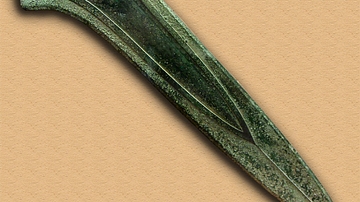
Image
Bronze Age Sword
Ceremonial giant dirk of the Plougrescant-Ommerschans type, Plougrescant, France, 1500–1300 BC.
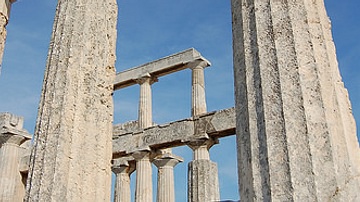
Image
Temple of Aphaea
The ruins of the temple of Aphaea on Aegina. Aphaea was only worshipped in this temple. Pausanias (2nd century AD) writes: "On Aigina as one goes toward the mountain of Pan-Greek Zeus, the sanctuary of Aphaia comes up, for whom Pindar...
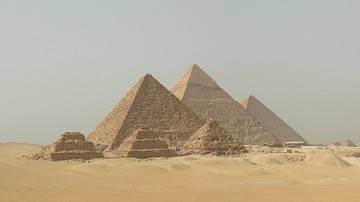
Image
The Pyramids
The Pyramids at Giza. The modern city of Cairo is visible in the background.
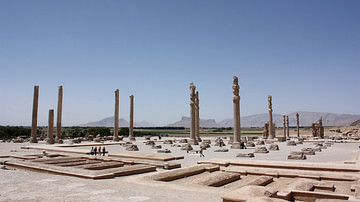
Image
Ruins of Persepolis
A photo of the ruins of Persepolis.
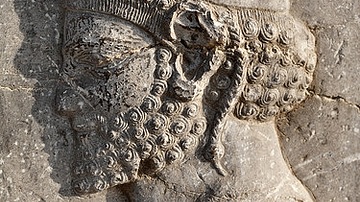
Image
Lydian Tribute-Bearer
Detail of a Lydian tribute bearer, bas-relief of the northern stairway of the Apadana (Darius the Great's audience hall) at Persepolis, capital of the Achaemenid empire. Lyda has become a satrapy (province) of the Persian empire with...

Image
All Nations Gate at Persepolis
Western view of the "All Nations Gate" at Persepolis, located in present-day Iran. This gate was not on Darius the Great's initial plan for Persepolis but was added by his son and successor, Xerxes. The initial main entrance of the palace...

Image
Ranks of Immortals
Ranks of the Louvre Museum melophores (immortal Persian guard) from the famous glazed bricks friezes found in the Apadana (Darius the Great's palace) in Susa by archeologist Marcel Dieulafoy and brought to Paris. Such polychromic friezes...

Image
Ramesses II, Abu Simbel
Four colossal statues of Ramesses II flank the entrance of his temple Abu Simbel.
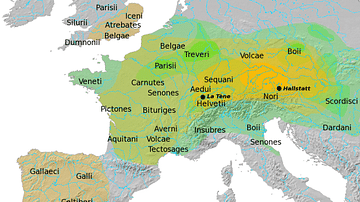
Image
Map of Hallstatt & La Tène Cultures
An overview map of the Hallstatt culture (c. 1200 - c. 450 BCE) - marked in yellow, and the La Tène culture (c. 450 - c. 50 BCE) - marked in green.